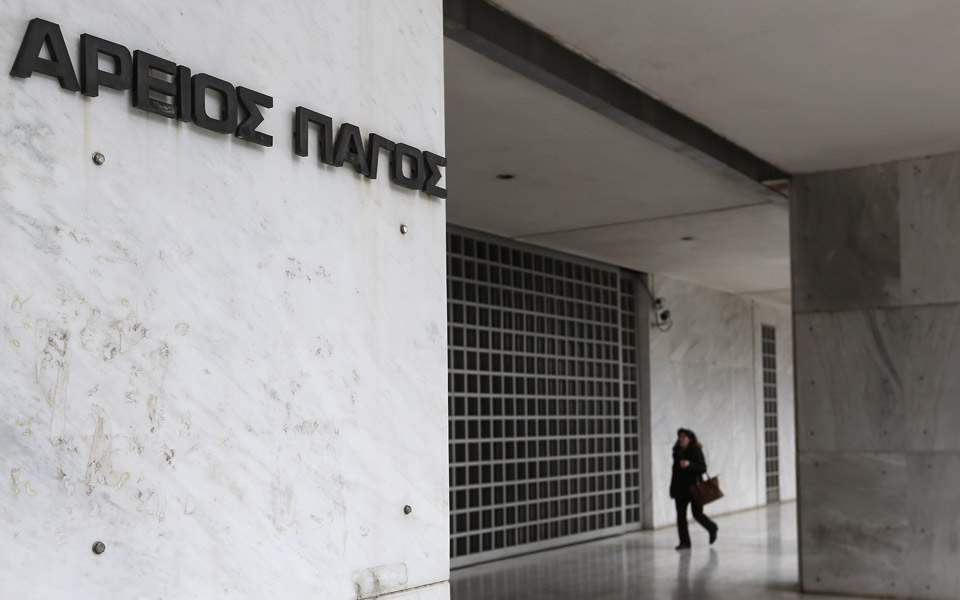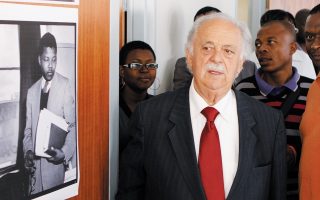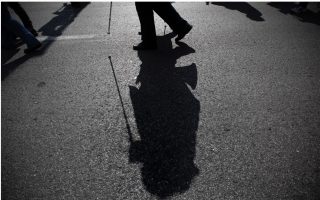Government of the People, by the People and for the People or a House divided?

Now, the American spotlight is focused on the Senate's Supreme Court confirmation hearing of Judge Amy Coney Barrett, a hearing which is riven with partisan political conflict between Republican hasty hypocrisy and Democratic helpless lamentation. It captures echoes from the annals of history of two of our better angels: one the restraint of President Abraham Lincoln in forbearing to nominate a candidate to fill a Supreme Court vacancy in the twilight of his term in office, the other the earlier, seminal, perhaps most famous case in US Constitutional law, Marbury v. Madison, which involved four American titans – Thomas Jefferson, James Madison, John Marshall and John Adams – and the long forgotten William Marbury.
The context of that case bears a striking similarity to the Amy Barrett nomination and its broader political background: John Adams, the outgoing US President, about to leave office on March 4, 1801, packed the Judiciary just two days before, with the nomination of 60 supporters of his Federalist Party to judgeships newly created on February 27, 1801 by the Federalist controlled Congress. Among these "Midnight Judges," as incoming President Thomas Jefferson's followers disparagingly called them, was Marbury, a wealthy Maryland businessman and staunch Adams supporter.
John Marshall, already named Chief Justice of the Supreme Court, but still serving as Adams' Secretary of State, sealed the judicial commissions and dispatched them to be delivered to the new judges, as time was running out. Most of them reached the appointees, but Marbury's did not. (Delivery was normally required under Anglo-American common law to complete a transaction, such as a gift or a land transfer, by deed and symbolic twig or turf.) Soon after becoming President on March 4, 1801, Jefferson ordered Madison, his new Secretary of State, not to deliver any of the remaining judicial commissions. Marbury was thus left out in the cold.
He repeatedly requested his commission and Madison repeatedly refused. Finally, in December 1801 Marbury sued Madison in the Supreme Court for a writ of mandamus (as rarely heard of today as Marbury himself) to compel Madison to deliver to him his commission. Now, the opposing players were In Court.
Interestingly, Jefferson and his new Democratic-Republican Congress passed a law that canceled the Supreme Court's 1802 term, suspending all pending cases, Including Marbury's. It would not be decided until 1803, when it became Marshall's turn to act, which he did, for a unanimous bench of four Justices. What emerged from Marshall's pen was the doctrine he created of judicial review which, while not found in the actual words of the Constitution, resulted in his holding that a Congressionally enacted statute – the Judiciary Act of 1789 – violated the Constitution, and to that extent was invalid, insofar as it sought to expand the jurisdiction of the Supreme Court beyond what the Constitution had conferred on it.
In a virtuoso chain of reasoning and structuring of his opinion – echoing for me the superbly crafted psycho-drama of Marc Antony's funeral oration for Julius Caesar in Shakespeare's play "Julius Caesar" and which Chief Justice Roberts emulated in upholding the Affordable Care Act, though with a reversal of the pros and cons – Marshall ruled that Marbury was entitled to a writ of mandamus , as a remedy for the wrong he had suffered by Madison's denying it – citing Roman law which was an integral part of Anglo-American common law that "where there is a legal right, there is a legal remedy" – and also that Congress intended that he could get his commission in an original legal action for a writ of mandamus in the Supreme Court, as well as in an appeal there from a lower court – but that the Constitution did not confer original jurisdiction on the Supreme Court to issue a writ of mandamus. Small consolation for Marbury, who remained out in the cold. (Chief Justice Roberts began his opinion by striking down the commerce clause of the Constitution as a basis for upholding the ACA, and concluded by affirming the taxing power as a basis for its Constitutionality, thus reaching a positive result, contrary to Marshall's negative one.)
______________________________________________________________________
Talk is emanating from Washington, D.C. that if the Democrats win the November election and gain control of the White House and the Senate, they should proceed to enlarge the Supreme Court and fill those new seats with liberally sympathetic nominees, as payback to the Republicans' double duplicity: first, their treatment of President Obama's nomination of Merrick Garland and second, their hypocrisy in now turning around and rushing forward with the confirmation of Judge Amy Coney Barrett on the very eve of the election, rather than awaiting the people's vote, as they argued for in letting the Garland nomination wither and die before the 2016 election. I believe there may be a better, immediate tactic for the Democrats to employ, which I advance later.
Talk is also emanating from the testimony of Judge Barrett to the effect that, like her mentor, Justice Antonin Scalia, for whom she clerked, she is an originalist, bound by the words of the Constitution, like Michelangelo's slaves imprisoned in stone. When we acknowledge that Chief Justice Marshall's promulgation of the Court's power of judicial review has no verbal foundation in the Constitution, it becomes clear that the Scalia-Barrett position is a high sounding cover for a pre-determined extremely conservative judicial philosophy, which will not admit any sunlight into the corridors of 18th Century social and economic thought.
Let us also remember that while we properly venerate the Constitution as the charter which regulates our government and many of our relations to it and to one another, it was an 18th Century document, which apportioned seats in the House of Representatives and taxes "according to the whole Number of free Persons…and three fifths of all other Persons." (Article I, Section 2) One does not need to be a Constitutional scholar to know that meant that legally African Americans were not equal to free whites. So one should approach the Constitution in the context of its time and its social, political and economic environment and regard originalism as one, but not the only, or even necessarily the best, guide to its interpretation and accept that there is room for pluralism, Constitutionally, as well as in so many other aspects of American life.
Great American jurists have espoused a different, far more enlightened and progressive philosophy, while standing in the mainstream and earning the respect and support of legal scholars and laypeople, alike. Oliver Wendell Holmes, Jr., certainly no radical or reputed liberal jurist, was born in the mid 19th Century, served and was wounded three times in the Civil War and was a legal realist at the academic lectern and on the bench well into the 20th Century. He was respectful of, but not captive to, the past. Here are some quotations from his long and distinguished life and career:
First and aptly, the foundational opening sentence from his renowned treatise, "The Common Law": "The life of the law has not been logic; it has been experience."
From a judicial opinion he wrote: "It is revolting to have no better reason for a rule than that it was laid down in the time of Henry IV."
"The first requirement of a sound body of law is that it should correspond with the actual feelings and demands of the community, whether right or wrong."
"A word is not a crystal, transparent and unchanged; it is the skin of a living thought and may vary greatly in color and content according to the circumstances and time in which it is used."
"The provisions of the Constitution are not mathematical formulas that have their essence in form, they are organic, living institutions transplanted from English soil. Their significance is vital, not formal; it is to be gathered not simply by taking the words and a dictionary but by considering their origin and the line of their growth."
An equally revered jurist of the 20th Century, who distinguished himself on New York's highest court, the Court of Appeals, and thereafter on the United States Supreme Court, and in so doing enriched and advanced the law with decisions which reflected and were in keeping with their modern and changing times, corresponding, as Holmes had written, with "the actual feelings and demands of the community," while focusing on higher standards of behavior and couched in enviable scholarship and elegant language, was Benjamin Cardozo, who also, like Holmes, had delivered landmark university lectures – Holmes the Ames Lectures at Harvard that were published as his treatise, "The Common Law," Cardozo the Storrs Lectures at Yale that were published in his book, "The Nature of the Judicial Process," which brought judges and their thinking down from Mount Olympus and imbued them with human thought and experience as the engine of their deliberative process. The connection between these scholar- jurists extends further: Cardozo was the Justice who filled Holmes' Supreme Court seat when Holmes retired in 1932. In significant contrast to recent times, Cardozo, a Democrat, was nominated by President Hoover, a Republican, in what was described as his "finest act" in his career as President and was unanimously confirmed by voice vote of the Senate, after having been recommended by the Deans of Harvard, Yale and Columbia Law Schools and the entire faculty of the University of Chicago Law School.
More from Cardozo later, but for now some of his memorable and illuminating quotations, which are relevant to the Supreme Court nomination at hand:
"Law never is, but is always about to be."
"The law, like the traveler, must be ready for the morrow. It must have a principle of growth."
"The great generalities of the Constitution have a content and a significance that vary from age to age."
"The validity of a tax depends upon its nature, and not upon its name," (which may survive as a twig with a second life, the livery of seisin salvation in the soon to be argued Affordable Care Act case in the Supreme Court).
"Danger invites rescue. The cry of distress is the summons to relief." (More to say of this later. For now it's worth repeating aloud, for its brevity and biblical force.)
And finally and importantly, "What has once been settled by a precedent will not be unsettled overnight, for certainty and uniformity are gains not lightly sacrificed. Above all is this true when honest men [and women] have shaped their conduct on the faith of the pronouncement."
One may well ask whether Judge Barrett's ears have been open to these words and whether her mind has absorbed them, able lawyer that she is. In a forward moving society to be entrenched is to be backward, and to be backward looking is to betray the promise of America.
______________________________________________________________
Precedent can – and should be – a useful guide, not only in the law, but outside it as well. As George Santayana famously said, "Those who do not learn from history are doomed to repeat it." Life and the law have changed substantially in the twelve score and four years since our forefathers brought forth our nation onto this Earth. In every day, at every turn, both confront a fork in the road and must decide which to take and which to leave. Justices Holmes and Cardozo can be of help, pointing one way in one case and the other way in the other case.
Holmes, we remember, spoke of the organic, which was transplanted from English soil. One such was a law case, decided in 1868 by the English House of Lords, after having been appealed from courts below. Titled Fletcher v. Rylands, it is familiar to every American law student, as it has an important place in Anglo-American common law. Briefly, Mr. Rylands engaged workmen to make a pond on his property. In the course of their digging they came upon some underground tunnels, which were filled with loose material. They left them pretty much as they found them. Subsequently, after they were done, water from the tunnels flooded onto Mr. Fletcher's neighboring land, causing damage to mines on his property. Fletcher sued Rylands for the damage and the House of Lords held in favor of Fletcher, on the ground that Rylands had brought water onto his land, which he had a duty to contain there and not let escape, to the damage of his neighbor. The decision has not been uniformly followed in subsequent cases, but enough survives to constitute the rule that one who brings harmful material onto his property – explosives, harmful chemicals, animals of a potentially destructive nature – has absolute liability if they escape and cause injury. Move this homespun rural incident from the bucolic English countryside to the industrial present, where industrial waste pollutes rivers and streams and makes surrounding land uninhabitable (e.g., the law case and film "A Civil Action"), or a chemical plant explodes with substantial loss of life (e.g., Bhopal, India), or the dam of a mining company in South America collapses and destroys land, forest, homes and lives, or nuclear Chernobyl, the biggest, baddest catastrophe of them all, or the constant immeasurable air pollution from carbon emissions from major industrial countries) and then study Fletcher v. Rylands for its precedent value in redressing the injury and, if possible, healing the environmental damage. Keep it in mind also as a reference to the United States withdrawal from the multi-national Paris climate change treaty and Judge Barrett's professed unfamiliarity with the basic fact of climate change.)
Cardozo, on the other hand, broke with precedent in 1916, in writing for the New York Court of Appeals in the case of MacPherson v. Buick, another simple case factually. There, Mr. MacPherson purchased a new 1909 Buick automobile, which had a defective wheel. Buick had not made the wheel, but had installed it, without having inspected it. MacPherson then drove the car, the defective wheel came off and MacPherson was injured. He sued the Buick Motor Company, which denied liability on the ground that the dealer, not the Buick Motor Company had sold the car to MacPherson, and there was no privity – i.e., no contractual relationship – between the Buick Motor Company and MacPherson. As this was a personal injury or tort case (tort being a civil wrong) , not a case of breach of contract, Judge Cardozo held that privity of contract between the Buick company and MacPherson was not necessary for MacPherson to recover from Buick for his personal injury. This was a departure from prior law, which required privity – rather like me trying to recover from your laundry for damage to my shirt which you, not I, had given to the laundry to wash ("no ticket, no wash" as the slang saying went). Viewed through a lens still clear after more than a century, it is manifest that Cardozo, in an increasingly industrial age of greater complexity, specialization and anonymity, was not going to be bound – or let a growing number of industrial victims be tied – to the horse and blacksmith economy of neighbor dealing with neighbor and a law which reflected it, but needed to outgrow it. He left the Gordian knot of privity in the realm of contract law and broke it in the realm of tort law.
Let the characteristic eloquence of Judge Cardozo speak from his opinion: "If the nature of a thing is such that it is reasonably certain to place life and limb in peril when negligently made, it is then a thing of danger. Its nature gives warning of the consequence to be expected. *** then, irrespective of contract, the manufacturer of this thing of danger is under a duty to make it carefully *** If he is negligent, where danger is to be foreseen, a liability will follow." How rooted in the facts, reduced to their essence, is the inexorable conclusion of Judge Cardozo. How undeniable is its practicality that the manufacturer of the vehicle, using whatever components it (although Cardozo quaintly uses "he" to greater humanize it) made or acquired should be the party to stand accountable, rather than the dealer (who presumably did not have as deep a pocket, though it had the opportunity and last clear chance to examine and remedy the defective wheel). Cardozo's opinion – and the nature of HIS judicial process – thus partakes of the quintessentially American pragmatism of Mark Twain and Tom Sawyer enlisting the innocents to whitewash Aunt Polly's fence. Justice done on a basic human level. No need for originalism, only the originality of genius. But it ushered in the dawn of modern product liability law, allowing the consumer to sue the manufacturer, rather than the retailer. Can one imagine getting sick from opioids or salmonella and having to sue one's local pharmacist or grocer, rather than the giant pharmaceutical or packaged goods manufacturer? We all owe a great debt to Judge Cardozo in our day to day lives.
______________________________________________________________
Originally, American law was English common law, which was mostly judge made law, the judgments handed down by judges in disputes between parties, although there were statutes, some of which, such as the Stamp Act, were provocative to the Colonists and were causes that led to the American Revolution. The judgments in mundane cases went no further than the parties, but some had broader significance and became doctrines which were embodied in the law and employed as rules to decide later, similar cases. The rule of absolute liability for dangerous substances on one's land, which the owner allowed to escape, as in Fletcher v. Rylands, was one, which a judge in a later, similar case, could cite as precedent to help decide the case before him. Another, was the rule in Hadley v. Baxendale (1854), an English contract dispute, which gave rise to the formulation of the measure of damages in breach of contract cases, as being what was reasonably foreseeable by the parties at the time they entered into the contract, usually the difference between the contract price and the market value of the subject of the contract – the cord of wood or the bushel of wheat – at the time of breach, on the assumption that the injured party would have to go into the market to procure the goods which the breaching party had failed to deliver, but with the line drawn that the injured party could not recover consequential damages, such as the profit he might have made from reselling the wood or wheat which the party in breach had failed to deliver.
With the passage of time and the growth and increasing complexity and proximity of society, there has been a greater need for the uniformity and regulation that statutes alone provide. For example, if two horsemen collided on a deserted country road, one being John Adams, a local justice of the peace (think of William Marbury, if he had received his commission) could decide the case, based on the parties' and perhaps witnesses' testimony. But in the years following Mr. MacPherson's ill fated ride in his Buick, the automobile traffic on intersecting and crowded roads would have to be regulated by traffic lights, which only a governmental authority could prescribe, install and maintain. And, as we know, Alphonse and Gaston have given way to road hogs, speedsters, reckless riders and drunken drivers.
While the body of American common law has grown apace, in states and localities, statutory law – at the Federal and State levels – has increased exponentially in volume and in scope and importance. Which brings us to the here and now.
I view differently the Supreme Court's proper role and power with regard to Judicial review of State and local statutes and ordinances, on the one hand, and Federal statutes, enacted by Congress, on the other hand. Those which emanate from the States are the product of all kinds of local pressures, prejudices and promises and, at the least, lack uniformity and in most cases, as well, the broad interest of the nation as a whole. On the other hand, the Federal statutes have, in my view, as authors, We the People, that is the Congress comprised of 435 Representatives and 100 Senators, who come from all 50 States, are periodically elected by the residents of their States – every two years to the House of Representatives and every six years to the Senate. It is as broad a cross section of attitudes and interests as one could expect reasonably to be assembled to do the nation's business and to speak for the People. That, of course, does not mean that the statutes that are enacted have anywhere near unanimous support. The support runs the gamut from bare majority, to strict division along party lines, to a high percentage in favor. But it does have geographic breadth and ideological depth and reflects agreement among disparate constituencies. To me this is a very strong reason for giving Federal statutes more than a mere presumption of regularity and Constitutionality, but rather a very high, virtually irreversible presumption. In England, they would be the final word, as the British Constitution is oral, not written, and Parliament's is the last word. In America, of course, we have a written Constitution and challenges from time to time – arguably more frequently than we should – which may work their way up to the Supreme Court, for final decision, much like a tennis tournament or post season baseball playoffs. I think this needs change, and that we need a far more stable, far less politically motivated approach to the Constitutionality of Federal statutes, with at the same time much less tolerance for State statutes which seek to restrict the exercise of fundamental human liberties and abridge – however minimally – those freedoms incorporated in the Bill of Rights, which are encompassed by the due process clause applicable to the States in what Cardozo called "implicit in the concept of ordered liberty." It seems to me that we have a tendency to be far too liberal in supporting Second Amendment rights with regard to firearms and far too conservative in seeking to restrict the quiet exercise of private sexual activities behind closed doors, between consenting adults, regardless of gender, and female decisions with regard to their own bodies and human reproduction, seeking to readily accept for the former whatever violence and multiple deaths and injury may result, while denying to the latter peaceful conduct which does not impact any other persons.
________________________________________________________
I believe we must confront the future with a new, bold and energetically modern Constitutional Jurisprudence: one that draws on the experience of the past, applies it to the realities of the present and equips it to meet the challenges of the future.
The tools we need include the following, in my view:
# We should acknowledge that the number of Supreme Court Justices was never set in stone. It was politically manipulated as early as 1801, when the Federalist party controlled Congress during President John Adams waning lame duck tenure reduced it by statute from six to five to decrease the incoming Republican-Democratic Jeffersonian opportunity to control the make-up of the Court, with an additional rule enacted requiring the retirement of two Justices before any new Court appointments could be made. Mischievous political sleight of hand is nothing new.
We all know that the Court packing attempt by President Franklin D. Roosevelt in the 1930's failed and that many Americans chafe at the lifetime appointments which may saddle the Court with Justices sitting beyond their time and touch with American life and its needs and values. This is a difficult situation, rife with political conflict, not easily addressed by the political party out of power, while the political party in power takes every opportunity to control the Court well into the future, as we see with President Trump's appointment of two and nomination of a third young Justice. With the Affordable Care Act in danger of repeal under a conservative dominated Supreme Court, perhaps if the Democrats win the White House and the Senate and retain the House, they could cancel or suspend the Court's current term – as Jefferson did back in 1802 – before it renders a judgment in the ACA case, and pass its own back-up legislation to protect people with pre-existing medical conditions.
# A better long term approach, for the Democrats, if they should win – and for the country – might be to follow the Act to Improve the Administration of Justice, 102 Stat 663 (1938), which eliminated most appeals by right to the Supreme Court and required the Court to hear appeals mostly only in cases involving Federal Civil Rights laws, legislative reapportionment and Federal antitrust actions, and tailor the Court's jurisdiction in one overriding novel material way: namely to restrict the Court's power to eliminate a Federal civil right or repeal a Federal statutory benefit in the absence of a finding that the civil right or statutory benefit has become obsolete or otherwise at least enjoys equally guaranteed protection by viable, subsisting law, and thereafter such action of the Court is ratified by Congress in two successive sessions. Congress may not enlarge the Court's jurisdiction beyond what the Constitution has provided, but it may reduce it. This would protect women's reproductive rights, as provided by Roe v. Wade. And overall, it would tend to depoliticize the Supreme Court and lessen the extent to which it may be thought of as a third legislative body, carrying out the political agendas of the Presidents who appointed the respective Justices – nine non-elected persons with proportionately more power than the elected officials whose acts they are reviewing.
If not already in the law, Congress should provide (1) that the preamble to the Constitution is an integral part of it and presumptively underlies and supports every law which seeks to provide for or address any one or more of those stated objectives. This could be used to protect same sex marriage under the preamble language "in order to form a more perfect union"; and (2) that it is the intent of Congress that the analogous language in the earlier Declaration of Independence regarding life, liberty and the pursuit of happiness as unalienable rights which governments are created to protect, likewise should be given similar force and effect, as though verbally incorporated in the Constitution, on the ground that what preceded and supported the second document and is not inconsistent with it, should be considered an integral part of it, as Cardozo connected two separate documents – neither of which was sufficient by itself to constitute a wholly complete writing to satisfy the requirement of the Statute of Frauds that all the essential terms of a contract be in writing – to make a complete memorandum of the transaction, which he described as "instinct with obligation, imperfectly expressed." (Crabtree v. Elizabeth Arden) This could be used to support ACA on the ground that to strike down the pre-existing medical condition protection would threaten the lives of those who could not afford to purchase health insurance without it.
# Finally, if – as appears likely – the ACA case is to be argued on November 10th before a nine Justice Supreme Court, including Justice Amy Coney Barrett, Justice Cardozo's writing and ruling may be helpful in supporting the Constitutionality of the statute, beyond the taxing power, which may no longer be available because of repeal of the mandate to purchase insurance (though I think there should be law and skillful argument against post-affirmance dismemberment of part of the statute allowing the entire statute to be stricken).
Recall Justice Cardozo said, "Danger invites rescue. The cry of distress is the summons to relief." (Wagner v. International Railway 1926) That is clearly the case – and the crying need – in the unprecedented time of this tragic global pandemic. While I have no evidence – and indeed the evidence prior to the covid-19 outbreak is to the contrary – I believe, not as a lawyer, but as a human being, that the Supreme Court Justices, who of course are human beings, as well as lawyers, some with young children, will hear the cry of distress and will not throw 20 million people off the insurance rolls, which will certainly cause many to become sick and large numbers to die, as 8 million Americans have already contracted the covid-19 virus and over 200,000 have died, while the numbers continue to rise daily and hourly.
Justice Cardozo wrote this opinion for the majority of the Supreme Court, in upholding the unemployment compensation provisions of the Social Security Act of 1935 under the general welfare clause of the Constitution (Steward Machine Co. v. Davis 1937). It has particular relevance today, 83 years later:
"The fact developed quickly that the states were unable to give the requisite relief. The problem had become national in area and dimensions. There was need of help from the nation if the people were not to starve. It is too late today for the argument to be heard with tolerance that, in a crisis so extreme, the use of the moneys of the nation to relieve the unemployed and their dependents is a use for any purpose narrower than the promotion of the general welfare."
With Justice Cardozo in my mind, I have hope in my heart that the Affordable Care Act will be saved.
Seth Frank is a retired lawyer and a poet. He has practiced law in New York for 40 years and has written 14 books of poetry and a novel. He divides his time among Athens, New York and Monaco.





